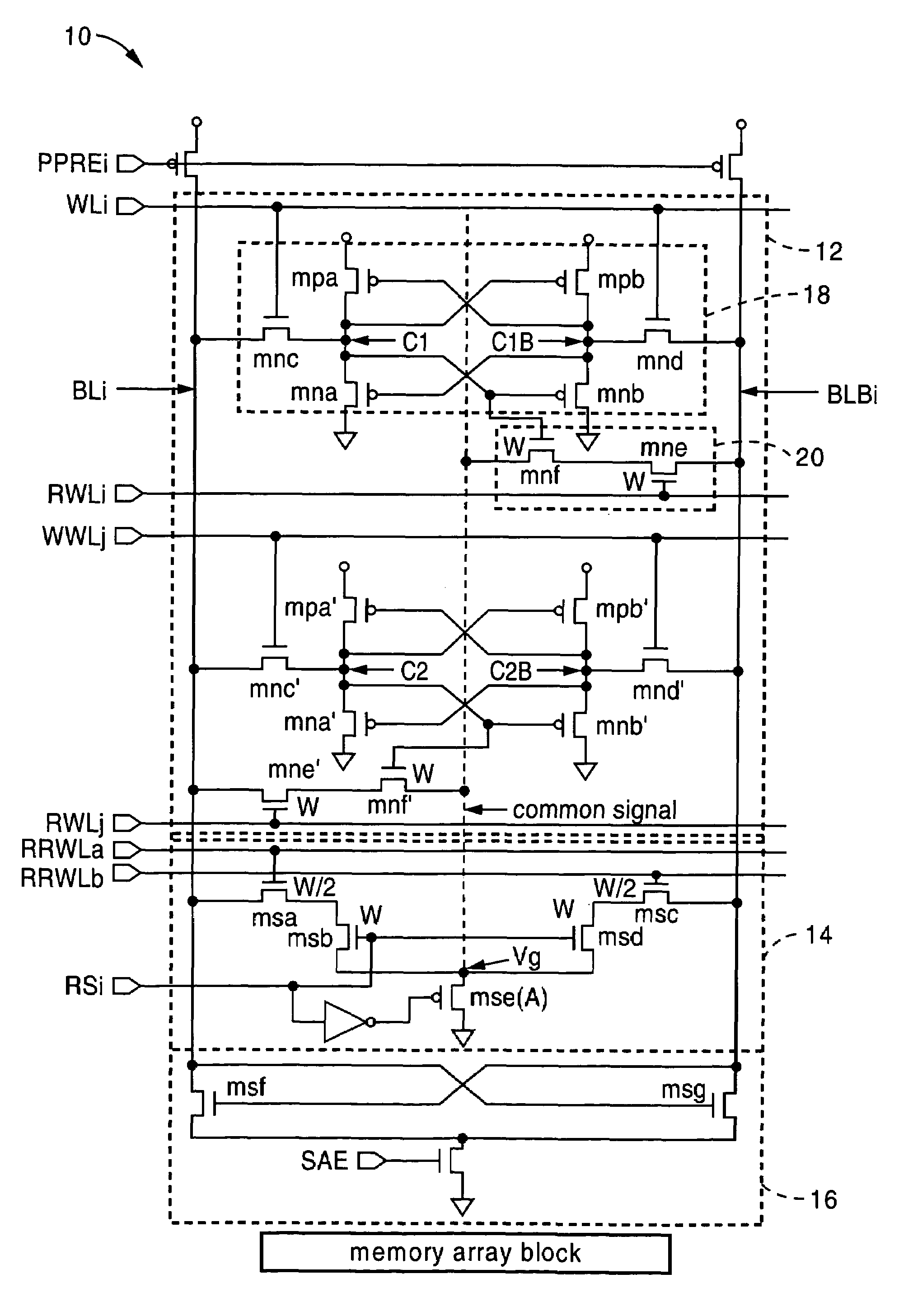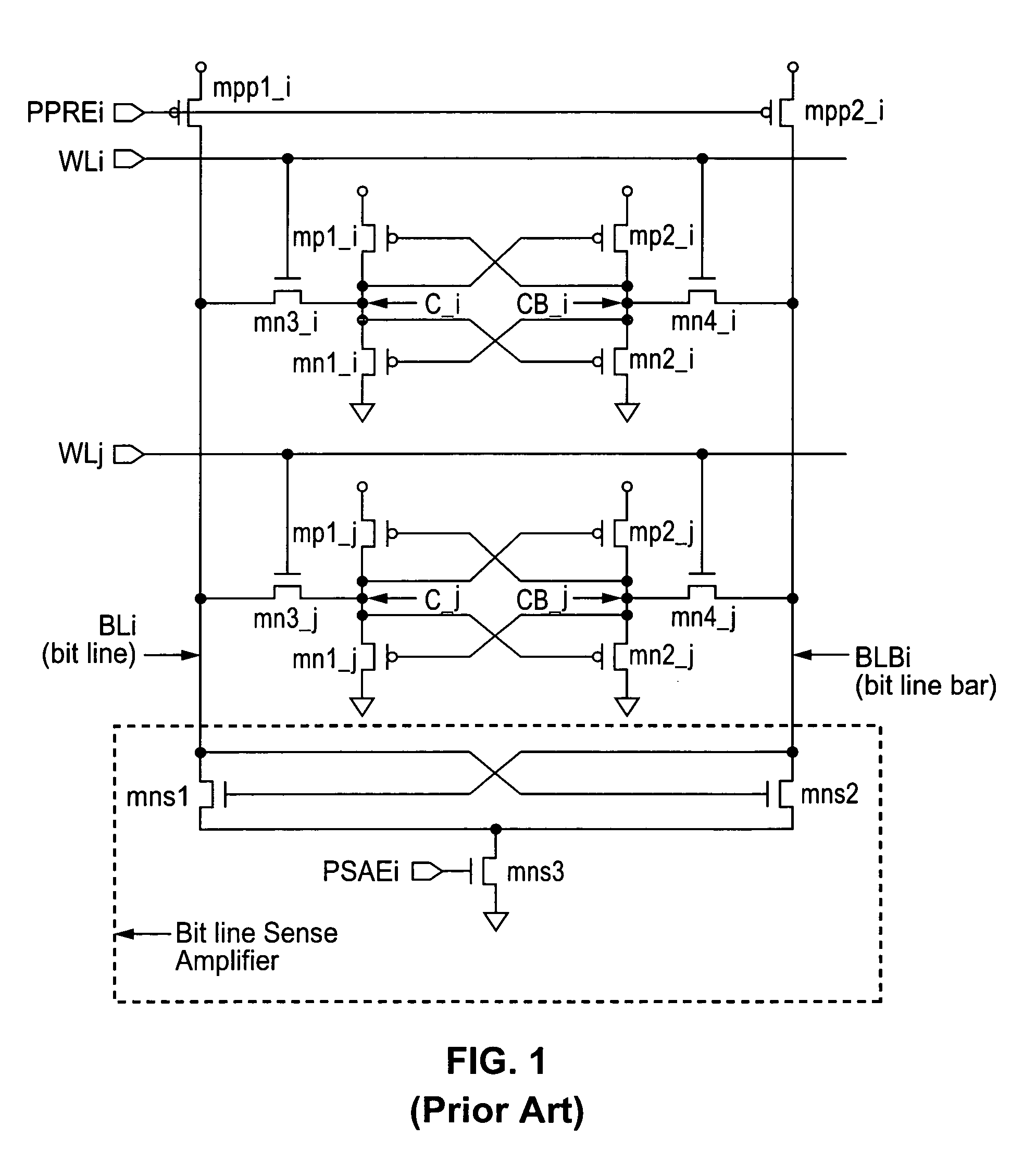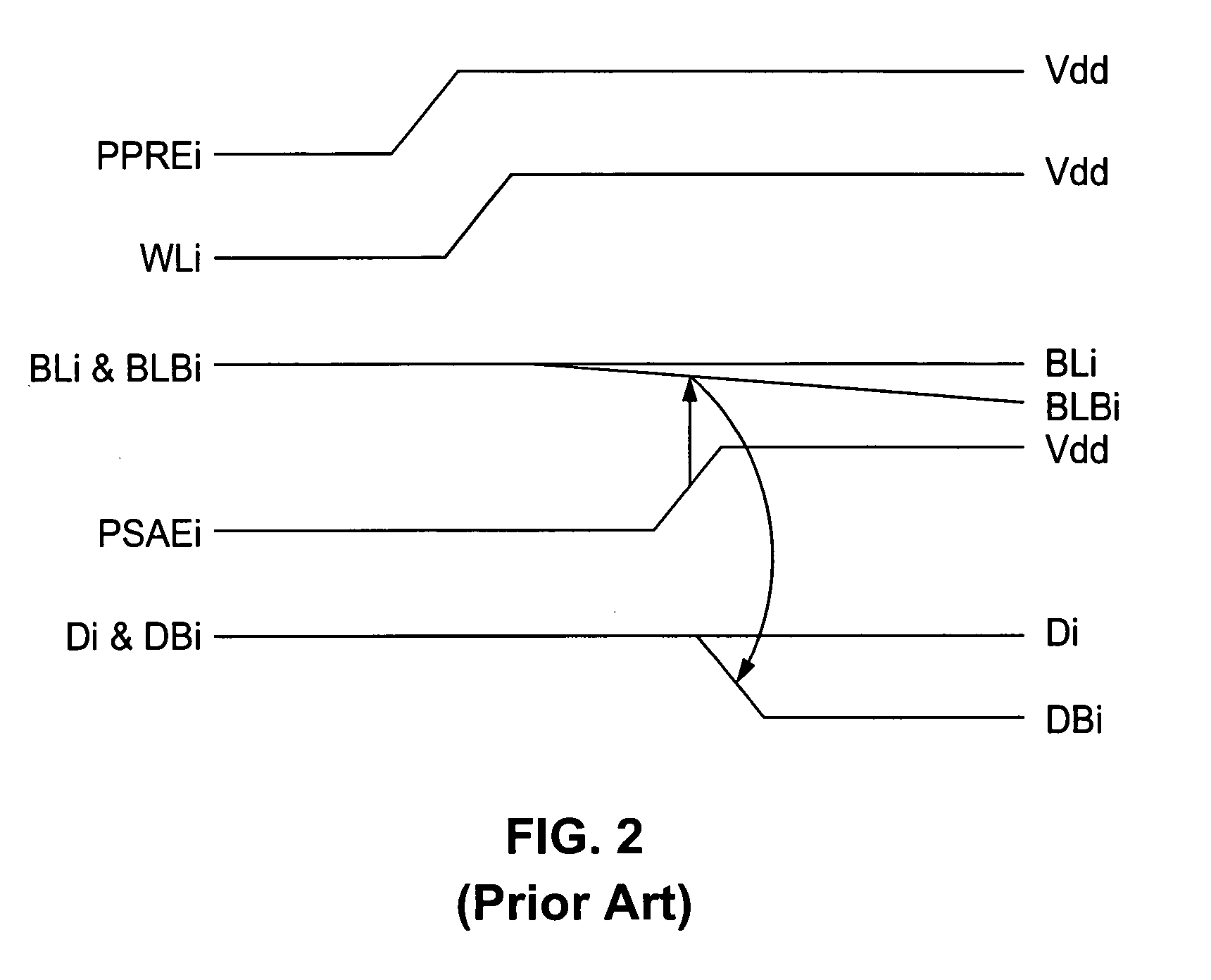SRAM cell structure and circuits
a cell structure and circuit technology, applied in the field of static random access memory circuits, can solve the problems of large portion of the total power consumption of the device, large current level cannot be ignored, and power consumption is a trade-off between read speed and power consumption, so as to reduce leakage currents, increase memory speed, and read high speed
- Summary
- Abstract
- Description
- Claims
- Application Information
AI Technical Summary
Benefits of technology
Problems solved by technology
Method used
Image
Examples
Embodiment Construction
[0042]Referring more specifically to the drawings, for illustrative purposes the present invention is embodied in the apparatus generally shown in FIG. 3 through FIG. 6. It will be appreciated that the apparatus may vary as to configuration and as to details of the parts, and that the method may vary as to the specific steps and sequence, without departing from the basic concepts as disclosed herein.
[0043]The new SRAM cell structure and related sensing scheme are configured for overcoming a number of the problems which arise with conventional SRAM architectures. One improvement is an architecture in which specific functional blocks can be designed with different threshold voltages to control leakage. For example, the transistors of the read circuit being configured with a lower voltage threshold than the storage transistors. As a second example, the write circuit is configured with a lower voltage threshold than the storage transistors, and the transistors of the read circuit are co...
PUM
 Login to View More
Login to View More Abstract
Description
Claims
Application Information
 Login to View More
Login to View More - R&D
- Intellectual Property
- Life Sciences
- Materials
- Tech Scout
- Unparalleled Data Quality
- Higher Quality Content
- 60% Fewer Hallucinations
Browse by: Latest US Patents, China's latest patents, Technical Efficacy Thesaurus, Application Domain, Technology Topic, Popular Technical Reports.
© 2025 PatSnap. All rights reserved.Legal|Privacy policy|Modern Slavery Act Transparency Statement|Sitemap|About US| Contact US: help@patsnap.com



